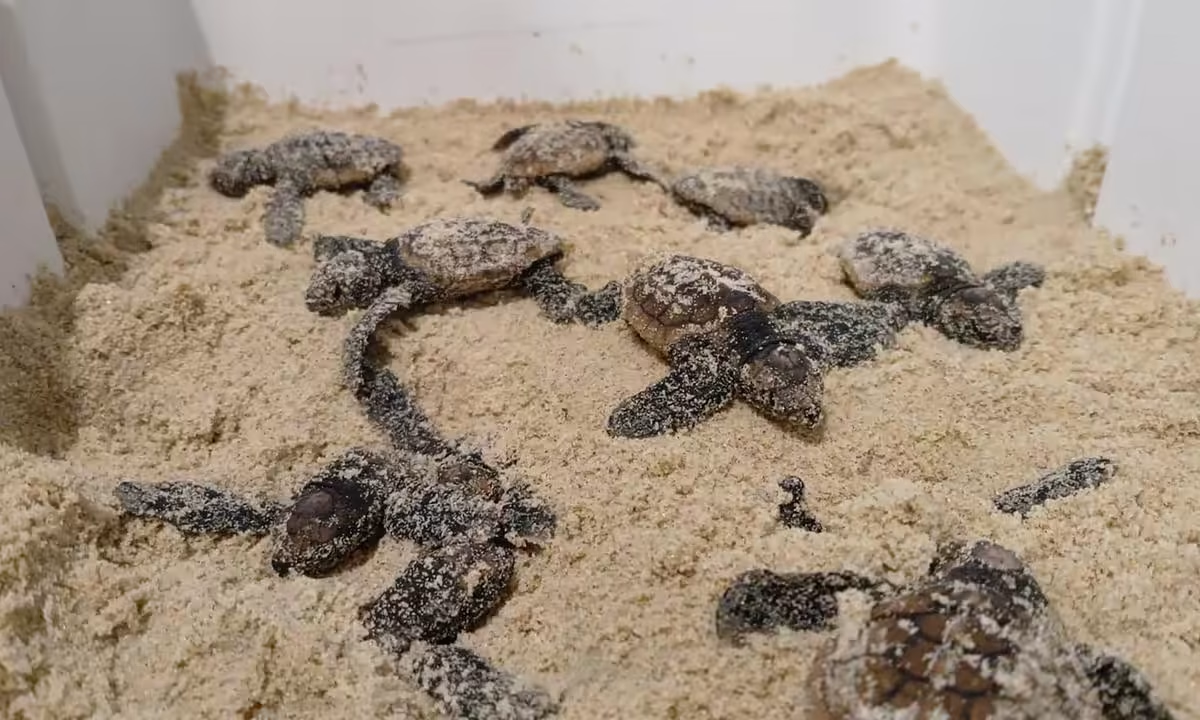
By Jacob Shteyman in Canberra
Australia is on track for structural deficits as far as the government can see, clouding the economy’s final approach to a soft landing.
The federal budget, unveiled by Treasurer Jim Chalmers on Tuesday night, locks in underlying deficits until 2035/36 as a result of ballooning spending and lower revenue growth than previous years.
The 2024/25 year budget is now estimated to be $27.6 billion in the red, more than $600 million worse than anticipated in the December mid-year update, following two brief surpluses.
But the headline deficit paints an even bleaker picture, with off-budget spending eclipsing $100 billion in the five years to 2028/29.
That includes investments in projects like the NBN, clean energy funds and student debt write-offs, which are supposed to make a return for the government but in recent years have more often than not failed to turn a profit.
Dr Chalmers looked on the bright side, comparing the state of the budget now with even gloomier forecasts before Labor came to office in 2022, touting a $207 billion improvement to the bottom line.
That has saved taxpayers from being on the hook for $60 billion in interest costs over the decade.
“These are some of the dividends of our responsible economic management,” Dr Chalmers told parliament in his budget speech.
“Achieved through a combination of spending restraint, finding savings and banking revenue upgrades.”
The government has banked almost 70 per cent of upgrades in tax revenue and made improvements to structural spending pressures like the NDIS, aged care in interest costs, Dr Chalmers said.
But the budget shows the improvement to the bottom line has come as a result of parameter variations – factors outside the government’s control – rather than policy decisions, which resulted in a $34 billion hit to cumulative deficits over the five-year forecast.
Tax receipts were also impacted by a $6.9 billion downgrade in the tobacco excise, which has encouraged a lucrative black-market for cigarettes and vapes.
The government provided another $156.7 million to boost enforcement efforts aimed at stamping out the illicit tobacco trade.
The structural degradation in the budget means Australia will eclipse $1 trillion in federal debt for the first time in the next financial year, putting the nation in a worse place to respond to economic shocks.
Treasury revised down Australia’s growth outlook for this financial year to 1.5 per cent, with ex-Tropical Cyclone Alfred delivering a 0.25 per cent hit to quarterly growth.
Amid slowing growth in China, wars in Europe and the Middle East, and a looming trade war driven by Donald Trump’s tariffs, Treasury predicts the global economy to grow at its slowest rate since the 1990s.
But Australian GDP would grow stronger in future years, while China and US slowed, revealing a new-found “Australian exceptionalism”, Dr Chalmers said.
“Tariffs and tensions abroad have been accompanied by storms at home,” he said.
“Storm clouds are gathering in the global economy too.
“Australia is neither uniquely impacted nor immune from these pressures, but we are among the best placed to navigate them.”
Underlying inflation, excluding the impact of energy rebates and fuel, is expected to be back in the Reserve Bank’s target band by the middle of this year, six months earlier than previously expected.
Wages, meanwhile, are expected to keep growing faster than inflation until at least 2028/29.
Treasury predicts growth in living standards, as measured by real household disposable income per capita, will accelerate to 2 per cent, boosted by more tax cuts announced in the budget, which will support a pick up in consumption.
“All of this means the soft landing we have been planning and preparing for is looking more and more likely.”
Who can be trusted?
In a world of spin and confusion, there’s never been a more important time to support independent journalism in Canberra.
If you trust our work online and want to enforce the power of independent voices, I invite you to make a small contribution.
Every dollar of support is invested back into our journalism to help keep citynews.com.au strong and free.
Thank you,
Ian Meikle, editor









Leave a Reply